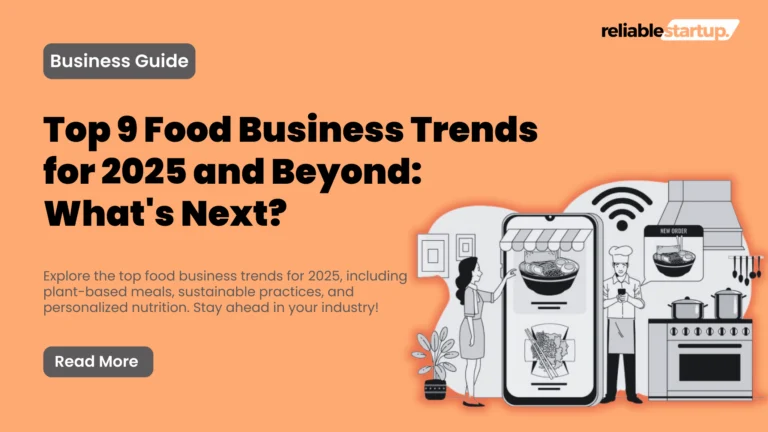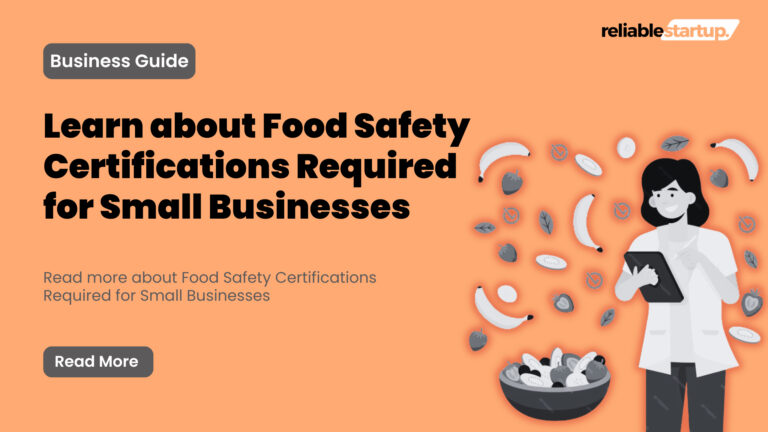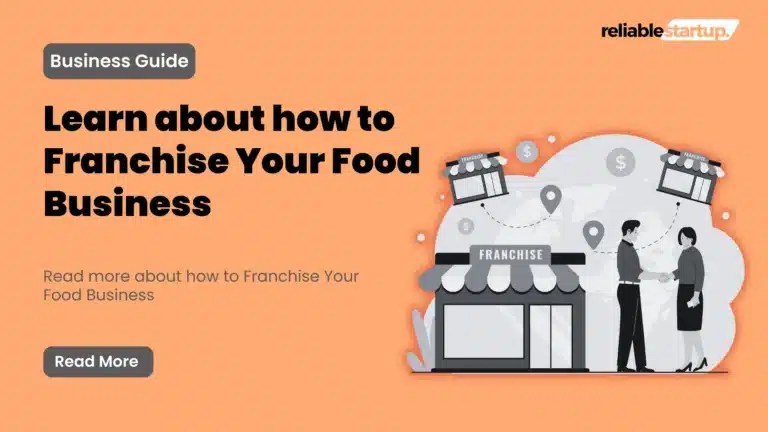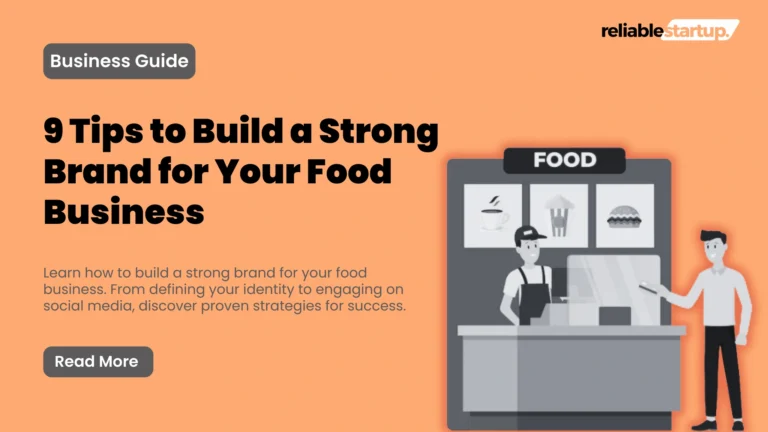How to Create a Food Truck Business Plan: 9 Key Sections
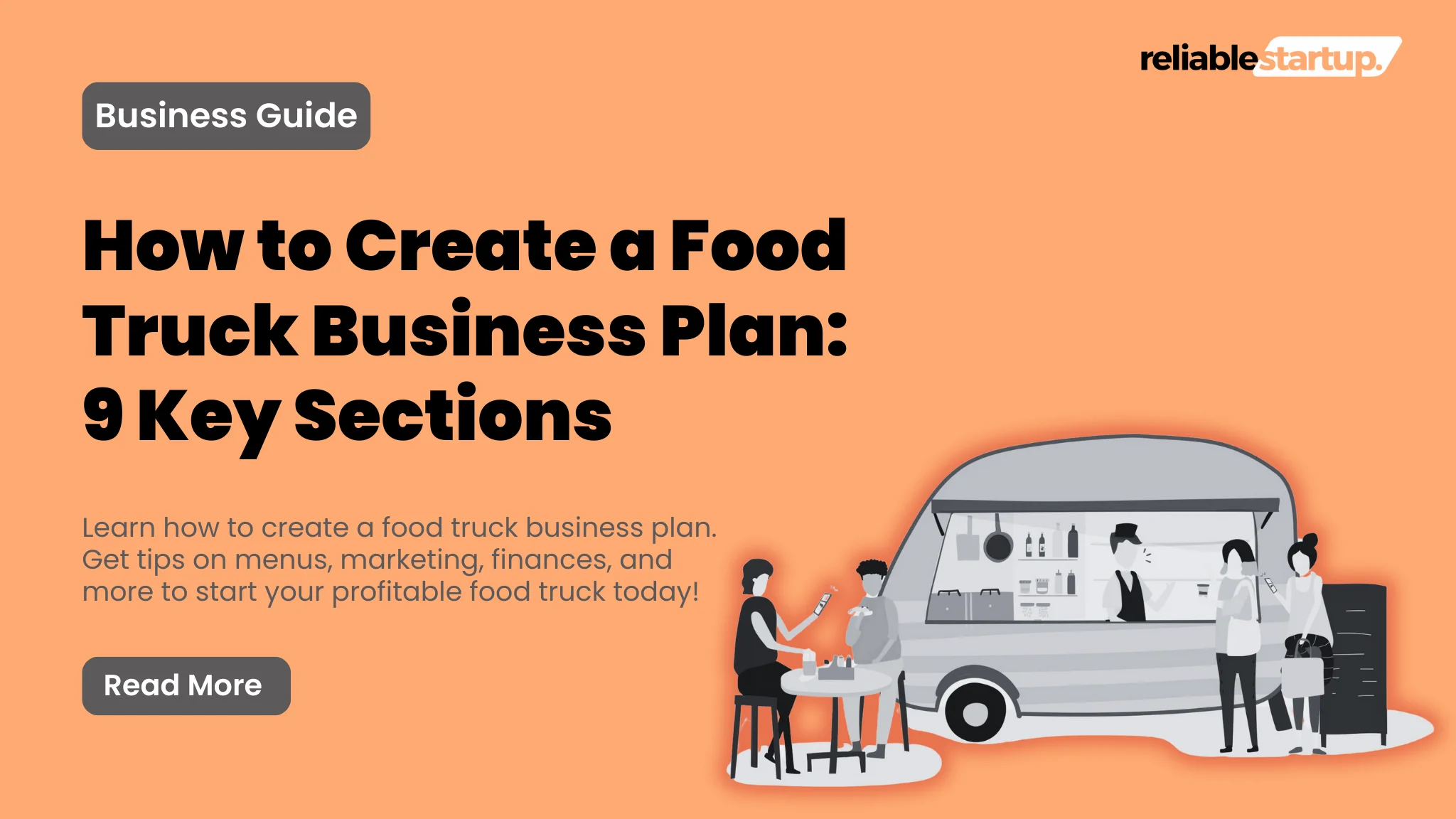
To own your food truck is such a beautiful idea, where you visit crowds here and there, savouring them with your amazing food. Unlike a shop, you have the liberty to roam around.
To make this dream a reality, you need a plan—yes, a clear food truck business plan. But what is essential enough to consider adding to such a plan? People often feel confused. Some even skip a business plan entirely.
Do you know what happens then? They regret it later when things don’t have pre-planned goals.
That’s the reason we are going to explain to you all how to create a food truck business plan. What are some of its important sections?
Let’s find out!
How to Create a Food Truck Business Plan
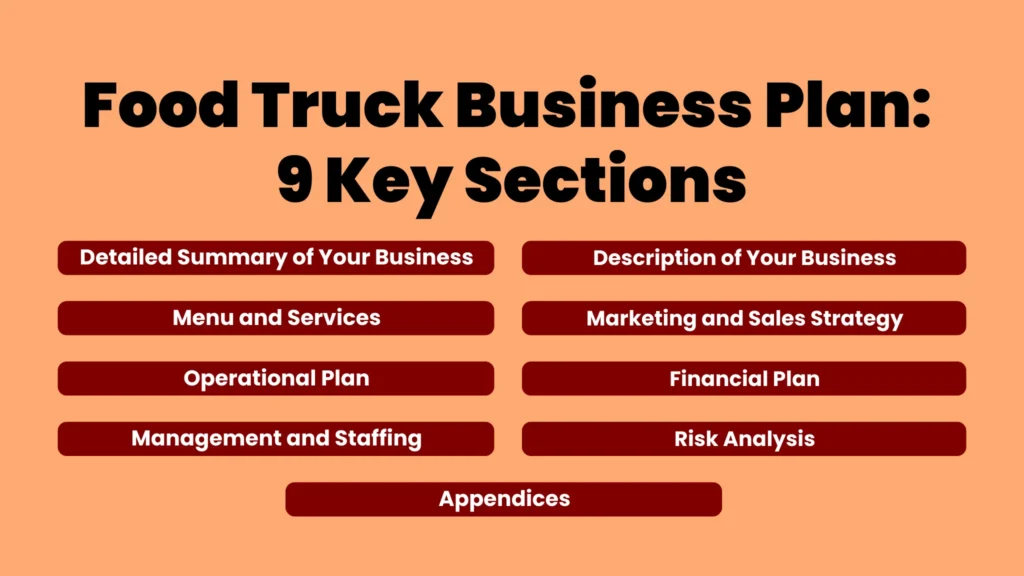
There are some simple steps to create a business plan. We’ve used an example of an imaginary business named The Frying Pan on Wheels to help you understand better. This is just a rough sketch of everything to make things clearer
1. Detailed Summary of Your Business
Start with an overview of your food truck business. Describe your food concept and the type of food you will serve. Also, mention the audience you will be serving. Simply Identify your target market! Keep this section brief but clear.
You should also mention your goals. These could include opening within six months or Scaling to multiple trucks. Include a short mission statement that highlights your unique offering.
2. Description Of Your Business
Provide more details about your business. Start with your truck’s name and legal structure, like LLC or sole proprietorship.
Where will your food truck operate? Will you be at local events or in a fixed location? Highlight what makes your food truck stand out. Why should customers choose you over competitors?
3. Menu and Services
With all the clarity regarding the details of your business, now write your menu. Simply list the food items you’ll serve. Be specific about each item and its ingredients.
Make sure your menu is clear and easy to understand. Mention any unique features or specialities. Include pricing details. Ensure the prices are competitive yet profitable.
Consider your service style. Will it be grab-and-go, or will you offer seating? Think about adding delivery or catering services.
4. Marketing and Sales Strategy
You should also include the details of your marketing strategies in this business plan. Start with describing your brand identity. This includes your logo, truck design, and colours.
Explain how you will use social media to attract customers. Instagram and Facebook are both amazing platforms to consider. Share photos, promotions, and behind-the-scenes content with your customers just to entice them.
5. Operational Plan
Explain how your food truck will operate day-to-day. Describe the truck and equipment you’ll need.
- Will it have a full kitchen?
- Where will you source ingredients?
Include information on permits and licenses, such as health permits and food handling certificates. Outline your hours of operation. Will you work daily or just on weekends?
6. Financial Plan
You should also have a very clear picture of your business finances from the beginning. So, add all the relevant details.
Outline your startup costs. This includes the truck, equipment, and permits. Estimate your revenue. How many customers do you expect each day or week?
Factor in food costs, wages, and maintenance. Calculate your monthly expenses. Include a break-even analysis. When will you start making a profit?
7. Management and Staffing
If you want to run the food truck alone and don’t intend to hire anyone. Then, explain how you’ll manage everything in this section. But if you want a team, list everyone’s roles and responsibilities.
At this stage, you should also decide what skills you are looking for while hiring the team members. For example, you might need chefs, servers, or truck drivers. Describe any staff training to ensure quality service and food.
8. Risk Analysis
Every business comes with its risks, and food trucks are no exception. Consider potential challenges like
- Weather disruptions
- Health inspections
- Equipment malfunctions
One also needs to plan on matters concerning food safety requirements and how you will be able to meet those requirements. Include mitigation strategies, such as having insurance or backup suppliers in case of emergencies.
A clear understanding of potential risks will help you prepare and reduce the impact on your business.
9. Appendices
The appendices are where you include additional documents that support your business plan. These might include
- Market Research Insights
- Financial Breakdown & Projections
- Sample Menu
- Food Truck Design Plan
Any supporting information that adds value and helps clarify your business concept should be placed here.
FAQs
1. How do I write a food business plan?
To write a business plan, you can follow the steps below:
- Start with an executive summary.
- Define your business concept and goals.
- Outline your menu and pricing strategy.
- Include your marketing and financial plans.
2. What is the most profitable food truck business?
Some of the popular food truck choices are:
- Gourmet Burgers
- Tacos
- BBQ
- Vegan Foods
However, income is dependent on location, menu quality and customer demand.
3. How do you write a proposal for a food truck?
To write a food truck proposal, follow the steps below:
- Start with an introduction and business vision.
- Explain your menu, target market, and competitive edge.
- Detail your equipment and location plans.
- Include financial projections and investment requirements.
4. What is the best business structure for a food truck?
Most food trucks start as an LLCs. It protects personal assets and offers tax benefits. You can also consider an S-Corp for tax savings if needed.
Conclusion
Success for a food truck business requires proper planning and execution. A solid business plan acts as a roadmap. It helps you stay organized. You feel more focused and prepared for challenges.
So consider making a business plan before starting. With passion, creativity, and dedication, your food truck can stand out. It can also become a profitable venture.
Need help crafting a business plan or executing your ideas? Get expert guidance to turn your food truck dream into a reality. Contact us today for personalized business consultations and step-by-step support!

